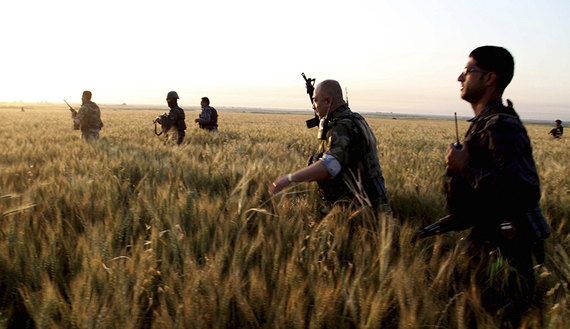Baghdad- Iraqi security sources said on Sunday that ISIS slaughtered 7 civilians following the Eid prayers by “cutting their bodies into small pieces” in the province of Kirkuk, located 250 kilometers north of Baghdad.
A source said the so-called Sharia court of ISIS in Hawija District sentenced seven civilians to death on charges of cooperation with Iraqi security forces, Alsumaria News reported on Sunday.
The source added that the terrorist group slaughtered the civilians on Sunday morning in public after the Eid Al-Fitr prayers.
Also, the source said on condition of anonymity that ISIS militants cut the bodies of the civilians into small pieces, then put the flesh in plastic bags and threw them in the southern suburb of Hawija.
ISIS still controls the Hawija District and the areas of al-Rashad, al-Abbasi, al-Zab and al-Riyad, considered as the strongholds of the terrorist group. ISIS also uses those areas to launch attacks on Salahuddin province and the outskirts of Kirkuk.
Meanwhile, a security source from Salahuddin said that four people were killed and three were injured when a Katyusha rocket fell on people as they gathered in the village of al-Mazra’a.
The German news agency dpa quoted one security official as saying that “several people were exchanging congratulations on the occasion of the Eid Al-Fitr outside one of the houses before a rocket fell on them on Sunday morning.”
The source said the injured were transferred to the Tikrit hospital for treatment, adding that one of them was in critical conditions.
Several villages surrounding Biji were being targeted by Katyusha rockets, while the Iraqi authorities were still not allowing residents to return to the city despite being liberated two years ago.
ISIS still controls areas east and north of the city, particularly the Makhoul Mountains and the desert area stretching from the provinces of Salahuddin to Anbar.
